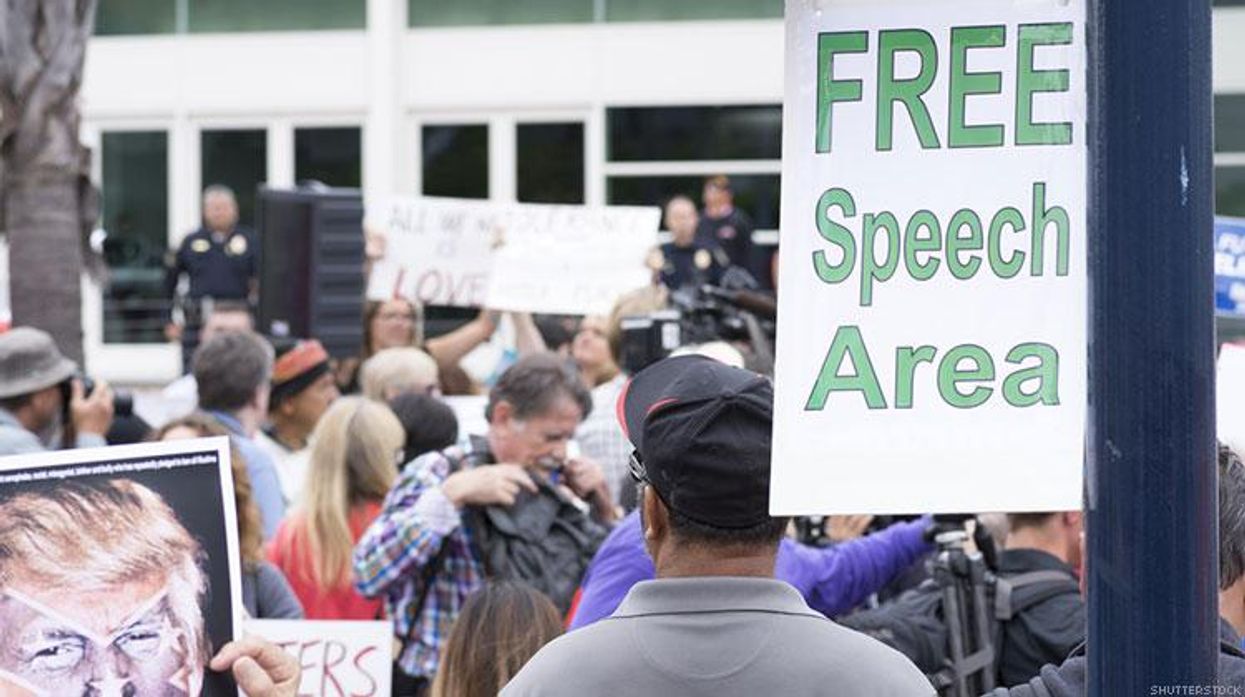Politics
Higher Ed Bill Could Enable Anti-LGBT Discrimination on Campus

The bill, pending in Congress, contains a "wish list" for conservatives.
February 01 2018 10:36 AM EST
trudestress
By continuing to use our site, you agree to our Privacy Policy and Terms of Use.

The bill, pending in Congress, contains a "wish list" for conservatives.
Republicans in Congress have loaded a higher education bill with provisions that opponents say could lead to widespread discrimination against LGBT students.
The pending 590-page bill, a renewal of the Higher Education Act, contains a "wish list" for conservatives, The New York Times reports. LGBT rights activists are especially concerned about a section that "prohibits the government from taking action against colleges -- such as revoking their tax-exempt status or disqualifying their students from federal loans -- for policies related to their religious mission or affiliation," according to the Times.
"The bill does not mention sexual orientation or gender, but its intent is clear," the paper continues. "At some Christian colleges, gay dating or marriage is forbidden, and same-sex couples are not permitted to live together in married-student housing."
"You're not just talking about a little Bible college," David Stacy, government affairs director for the Human Rights Campaign, told the Times. "When you think about Catholic universities, there are a lot of those, and quite a few of these universities would discriminate against same-sex student relationships."
However, Everett Piper, president of Oklahoma Wesleyan University, a Christian school, told the paper, "There's a huge difference between discriminating against behavior and discriminating against a person," His college forbids students to engage in same-sex relationships, with a list of prohibited behaviors including "homosexual P.D.A.," that is, public displays of affection.
Another part of the bill deals with the right of religious groups on campus to limit membership to those who share their beliefs. Some colleges and universities require these groups to admit anyone, regardless of belief, if they seek school funding or meeting space on campus. The legislation would bar such policies at public universities.
"It would counteract a Supreme Court decision in 2010 that allowed the University of California Hastings College of the Law to withhold recognition from a student group, the Christian Legal Society, because it blocked gay students from having voting privileges or leadership roles," the Times reports.
The bill would also would prevent colleges from punishing single-sex social organizations, such as fraternities and sororities, and make schools declare their speech policies, a provision aimed at those that have limited conservative speakers to "free speech zones" -- the schools could still have these zones but could be sued if they changed policies for certain speakers.
The bill passed the House Committee on Education and the Workforce in December and is likely to pass the full House, the Times reports, although its chances of passing the Senate in its current form are slimmer. Some of its more controversial provisions may be weakened so that they are simply "statements of principle," not legally binding, in order to pass the Senate.
An aide to Rep. Virginia Foxx, the far-right, anti-LGBT politician who chairs the education committee, strongly endorsed the bill as written. "Colleges and universities, both public and private, have long been considered environments that support robust debate and freedom, and Republican members of Congress share that belief and are sending a message to the higher education community that these important issues cannot be ignored," Foxx spokesman Michael Woeste told the Times in a prepared statement.
Education activists are giving the measure mixed reviews. "Here is this legislature in this antiregulatory mode that purports to want to liberate institutions from the overreach by the federal government, and here we are with essentially nongermane stuff," Barmak Nassirian, director of policy analysis for the American Association of State Colleges and Universities, told the paper. "What does this have to do with people going to college and receiving aid?"
But Joe Cohn, legislative and policy director for the Foundation for Individual Rights in Education, said the provision on speech policies would benefit all ideologies. "People are censored by who they disagree with," he told the Times. "Students are censored from all parts of the political spectrum for a variety of motives."
Charlie Kirk DID say stoning gay people was the 'perfect law' — and these other heinous quotes